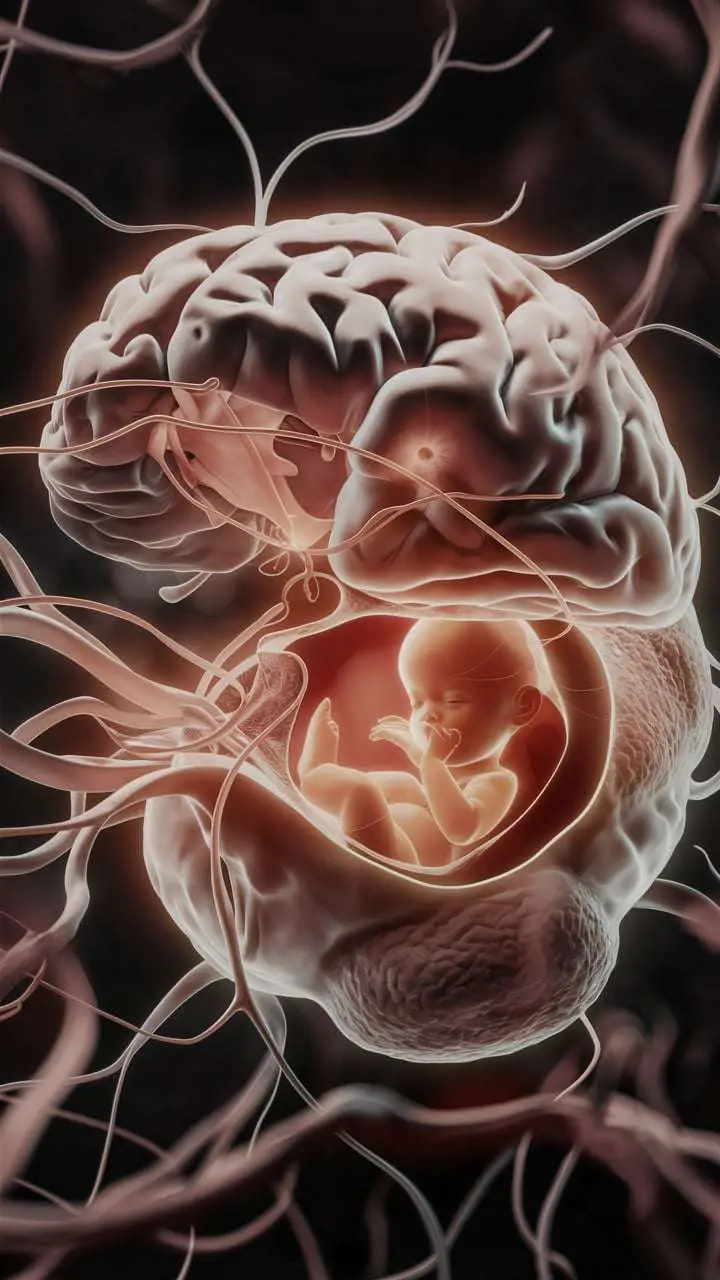Understanding what causes weight gain in the first trimester is crucial for expectant mothers as they embark on this transformative journey. Significant physiological changes occur throughout the first trimester, and weight increase is a common occurrence.
Although it is usually not much, a number of reasons, including hormonal changes, elevated blood volume, and hunger changes, might contribute to this early weight gain. Keeping a healthy perspective on weight gain and controlling expectations are made easier by acknowledging these issues.
We’ll look at the main causes of early pregnancy weight fluctuations in this blog post and offer advice on how to get through this stage with balanced health and fitness.
Hormonal Changes:
Hormonal changes are a major factor in understanding what causes weight gain in the first trimester. During early pregnancy, the body undergoes significant hormonal fluctuations, primarily involving hormones like progesterone and estrogen.
Progesterone plays a crucial role in maintaining pregnancy by relaxing smooth muscles, including those in the digestive tract. This relaxation can lead to slower digestion and increased appetite, contributing to weight gain. Additionally, progesterone supports the growth of the uterine lining and increases blood flow, which can also impact weight.

Estrogen, another key hormone, increases to support the development of the placenta and fetal growth. Elevated estrogen levels can influence fat storage, causing the body to retain more fat as a reserve for energy and to support the developing fetus.
These hormonal changes not only affect appetite and digestion but also alter the body’s metabolism and fluid balance. The cumulative effect of these hormonal shifts can lead to noticeable weight gain even in the first trimester. Understanding these hormonal influences is essential for managing expectations and promoting a healthy pregnancy.
Increased Blood Volume:
One of the significant factors in understanding what causes weight gain in the first trimester is the increase in blood volume that occurs during early pregnancy. As the body prepares to support a growing fetus, blood volume rises substantially to meet the increased demands for oxygen and nutrients.
A woman can have a 20–30% increase in blood volume by the end of the first trimester. The placenta’s development and the fetus’s ability to get enough blood flow depend on this surge. The extra blood also aids in meeting the body’s higher metabolic demands during pregnancy.

Due to the increased body mass resulting from this increased blood volume, weight gain is directly caused by it. The reading on the scale is also influenced by the body’s tendency to retain more fluid in addition to the higher blood volume.
Understanding this aspect of early pregnancy can help expectant mothers recognize that some weight gain is a natural and necessary part of supporting a healthy pregnancy. It underscores the importance of a balanced approach to diet and wellness during this period.
Fluid Retention:
Fluid retention is a key factor in understanding what causes weight gain in the first trimester. During early pregnancy, the body undergoes various changes that lead to an increase in fluid retention, contributing to weight gain.
Increased progesterone levels in particular cause the body to be able to hold on to more fluid. Increased salt retention in the kidneys due to progesterone results in increased water retention. This fluid buildup keeps the growing fetus and placenta adequately hydrated while supporting the increased blood volume.
The body’s increased need for fluids to promote the formation of new tissue and the volume of amniotic fluid around the baby both have an impact on fluid retention. The body has enough resources to support the early stages of pregnancy thanks to this natural mechanism.
It’s crucial to realize that fluid retention is a typical aspect of pregnancy, even though it can result in a discernible increase in weight on the scale.
Monitoring fluid intake and maintaining a balanced diet can help manage excessive fluid retention and support overall health during this time.
Changes in Eating Habits:
Changes in eating habits are a significant aspect of what causes weight gain in the first trimester. During early pregnancy, many women experience shifts in appetite and food preferences due to hormonal changes.
Increased levels of hormones like progesterone and estrogen can lead to heightened hunger and cravings for specific foods. This is partly because the body is working harder to support the developing fetus and meet its increased nutritional needs.
As a result, many women find themselves eating more frequently or choosing higher-calorie foods.
Changes in taste and scent may also be experienced by pregnant women, which may have an additional impact on the foods they choose and consume. If not controlled, frequent cravings for foods heavy in fat or sugar can lead to weight gain.
Furthermore, nausea and morning sickness can change a person’s eating habits by encouraging the consumption of comfort foods or short, frequent meals that may be higher in calories. Weight gain during the first trimester may be attributed to this shift in eating habits as well as an increase in hunger.
Knowing these changes enables pregnant moms to satisfy their nutritional demands throughout the early stages of pregnancy, make educated dietary decisions, and effectively manage their weight.
Uterine Growth:
Uterine growth is a significant factor in understanding what causes weight gain in the first trimester. As pregnancy progresses, the uterus undergoes considerable expansion to accommodate the developing embryo and later, the fetus.
This growth begins early in the first trimester and has a notable impact on overall weight gain. The uterus grows larger throughout the first trimester in order to accommodate the developing embryo, which needs more room and resources.
To create the ideal environment for embryonic development, this growth is necessary. Weight fluctuations are also a result of the enlarging uterus pressing on nearby tissues and organs.
The weight of the body as a whole increases with the expansion of the uterus, even though the fetus is still very little at this point. This expansion can result in weight gain that shows up on the scale and contributes to changes in body shape.
Recognizing that uterine growth is a normal and necessary part of early pregnancy helps expectant mothers understand the various factors contributing to weight gain and supports a healthy approach to managing weight during this period.
Tips for Healthy Weight Management:
Managing weight healthily during pregnancy is crucial, especially when considering what causes weight gain in the first trimester. To ensure a balanced approach to weight management, consider the following tips:
- Adopt a Balanced Diet: Focus on a nutritious diet rich in fruits, vegetables, whole grains, lean proteins, and healthy fats. This helps meet the increased nutritional needs of pregnancy without excessive calorie intake. Choose foods that provide essential vitamins and minerals, crucial for both maternal and fetal health.
- Monitor Portion Sizes: Eating more frequently but in smaller portions can help manage appetite and reduce the tendency to overeat. Pay attention to portion sizes to avoid unnecessary weight gain while still providing sufficient energy for both you and your baby.
- Stay Hydrated: Drinking plenty of water helps manage fluid retention and supports overall health. It can also help control hunger and reduce the likelihood of mistaking thirst for hunger.
- Exercise Regularly: Engage in moderate physical activity, such as walking or swimming, as advised by your healthcare provider. Regular exercise helps manage weight, improves mood, and enhances overall well-being.
- Listen to Your Body: Pay attention to your body’s signals of hunger and fullness. Eating mindfully can help prevent overeating and ensure that you’re meeting your body’s needs without excess.
- Regular Check-ups: Keep up with prenatal appointments to monitor weight gain and overall health. Your healthcare provider can offer personalized advice based on your progress and any specific concerns.
By incorporating these strategies, you can effectively manage weight gain during the first trimester and support a healthy pregnancy.
Conclusion:
In conclusion, knowing what causes weight increase during the first trimester gives expectant women the confidence they need to successfully traverse this important stage. Early weight gain is caused by hormonal changes, elevated blood volume, fluid retention, and changes in eating patterns.
You may effectively manage your weight and promote a healthy pregnancy by following a balanced diet, watching portion sizes, drinking plenty of water, and exercising on a regular basis. Accept these realizations to make sure that this crucial period benefits both you and your child. Click to learn more.
FAQs:
- What causes weight gain in the first trimester?
Weight gain in the first trimester is primarily due to hormonal changes, increased blood volume, fluid retention, and changes in eating habits.
- How much weight is normal to gain in the first trimester?
Weight gain of about 1-5 pounds is typical during the first trimester, although individual experiences may vary.
- Can fluid retention affect weight during early pregnancy?
Yes, fluid retention is common in early pregnancy and can contribute to noticeable weight gain.
- How do hormonal changes impact weight gain in early pregnancy?
Hormonal changes, especially increased progesterone and estrogen, can increase appetite and fluid retention, leading to weight gain.
- What are some tips for managing weight gain in the first trimester?
Maintain a balanced diet, monitor portion sizes, stay hydrated, engage in regular exercise, and listen to your body’s hunger signals.

2 thoughts on “What Causes Weight Gain in the First Trimester? Exploring Early Pregnancy Changes”